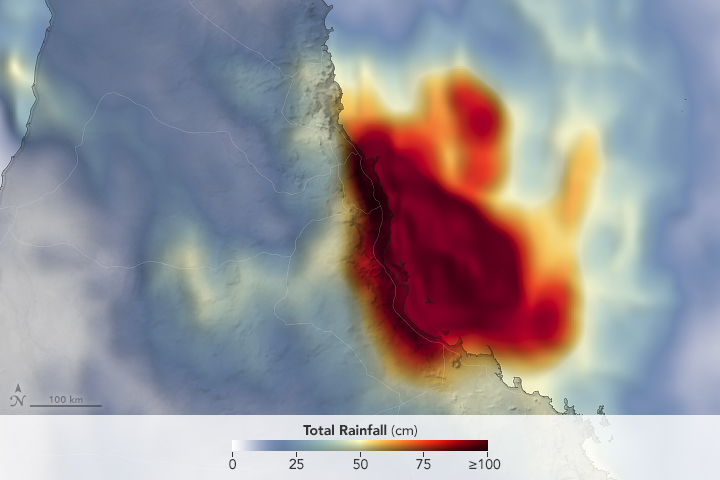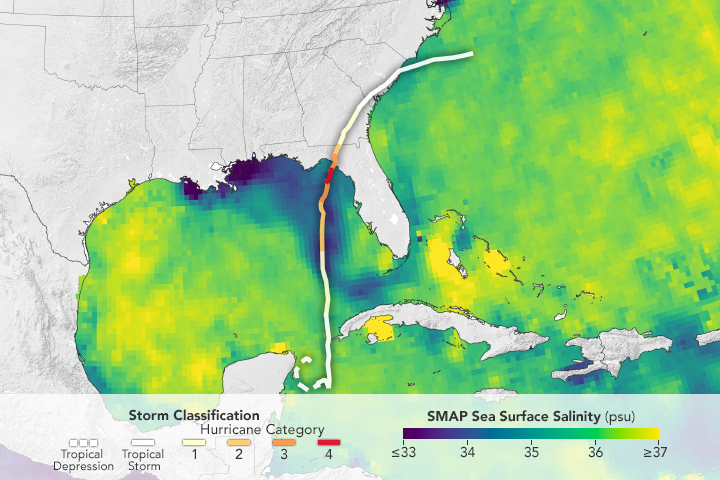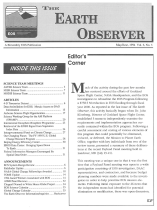



Recent Imagery
You will be directed to the NASA Visible Earth webpage when you select Images by Mission below, or click on the images at right that are randomly generated to represent four out of all possible topics.
The Earth Observer has a new look! Visit the NEW Earth Observer website.
The Earth Observer: May - Jun, 1994
In This Issue
Click title below to view page
SCIENCE TEAM MEETINGS
ASTER Science Team ... 3
MISR Science Team ..... 7
MODIS Science Team ... 11
ARTICLES
4-D Timeseries Dataset .... 6
Data Assimilation for EOS: Mosaic Access to DAO Information .... 15
Airborne Science Flight Opportunities .... 17
Science Working Group for the AM Platform (SWAMP) ..... 20
International Geosphere-Biosphere Programme .... 23
Retrieval of the ENSO Signal from Vegetation Index Data ..... 24
Intergovernmental Panel on Climate Change ..... 27
Our Changing Planet: The FY 1995 U.S. Global Change Research Program .... 28
Beijing Energy Efficiency Center .... 30
EROS Data Center: Bringing Space Down To Earth .... 31
Federal Information Managers Encouraged By Spatial Data Order ..... 31
ANNOUNCEMENTS
ECS System Design Review ..... 6
Pathfinder Update ..... 6
NASA Global Change Fellowships Awarded ... 10
TOMS Update .... 14
1994 Award Winners Associated with EOS ... 14
ATBD Panel Reviews .... 32
Chappell Named to White House Globe Project .... 34
EOS Science Calendar .... 35
Global Change Calendar ..... 35
The Earth Observer Information/inquiries ... Backcover
Editor's Corner
Michael King, EOS Senior Project Scientist
Much of the activity during the past few months has centered around the efforts of Goddard Space Flight Center, NASA Headquarters, and the EOS investigators to rebaseline the EOS Program following a $758.5 M reduction in EOS funding through fiscal year 2000. As reported in the last issue of The Earth Observer, this activity basically began when Dr. John Klineberg, Director of Goddard Space Flight Center, established 3 teams to independently examine the requirements and implementation approaches currently contained within the EOS program. Following a careful assessment and costing of various elements of this program that could potentially be eliminated, reduced, or deferred, the Mission to Planet Earth Office, together with key individuals from two of the review teams, presented a summary of these deliberations at the recent Payload Panel meeting held in Landover, MD (July 19-21).
This meeting was a unique one in that it was the first time that a Payload Panel meeting was open to a wide participation consisting of EOS investigators, DAAC representatives, and contractors, and because budget planning numbers were made available to the investigators in order to help prioritize EOS mission elements. Following initial exposure to the 26 items that the independent teams had identified for potential e limination or modification, there was open discussion,...
Read more...

